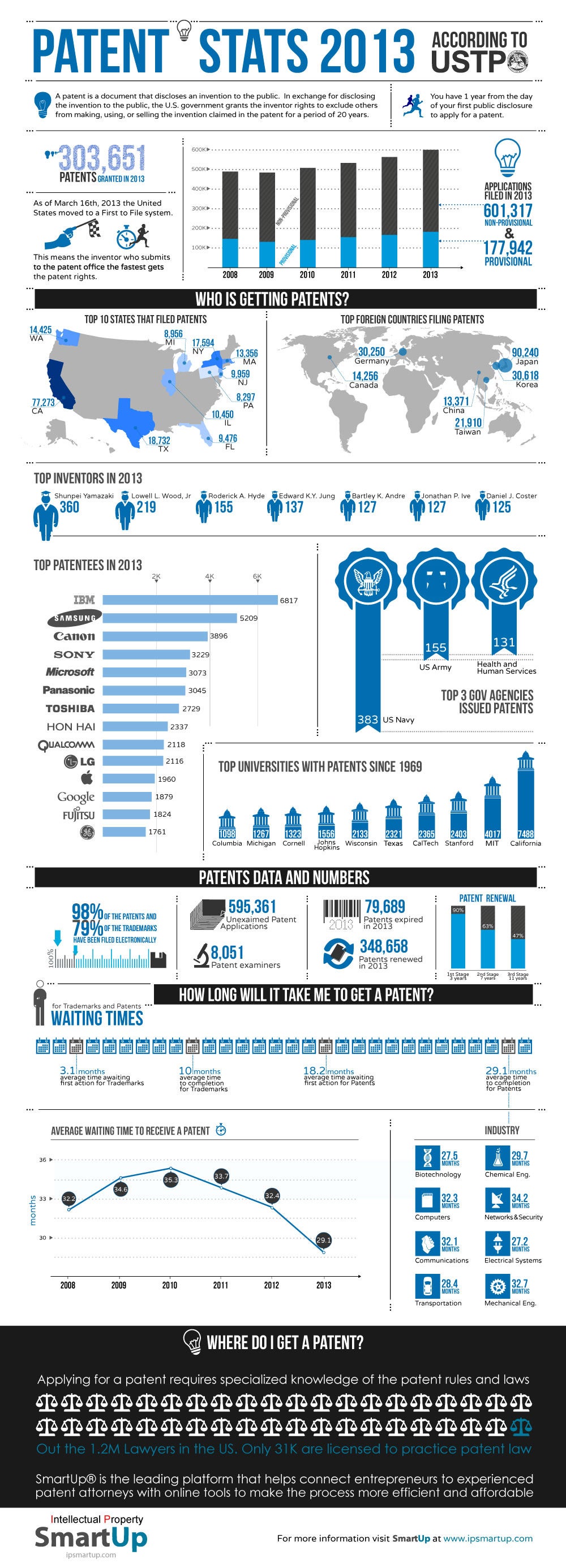Good overview of the terms we discussed today:
http://entrepreneurs.about.com/od/intellectualproperty/a/patenttrademark.htm

Good overview of the terms we discussed today:
http://entrepreneurs.about.com/od/intellectualproperty/a/patenttrademark.htm

An IP partner in Silicon Valley discusses some of the current legislation on patent-trolling and how this could be beneficial for future entrepreneurial activity.
http://techcrunch.com/2013/08/03/effects-of-patent-troll-legislation-on-startups/
An interesting look into whether “patent trolls” can possibly put the future of podcasting at risk.
http://www.dailyfinance.com/on/adam-carolla-patent-troll-podcasting-lawsuit-stakes/
An additional perspective and consideration of the implications of the Myriad Genetics case. The article brings several questions to mind, including how far the Supreme Court’s decision might reach and whether and what other medical and technological advances might feel repercussions.
Interesting article about the number of inactive user accounts currently on Twitter. Of the 941 million Twitter accounts in existence, almost half (44%) have never even sent a tweet. This seems like a problem for a company with a market cap of 23.6 billion, but a reported net loss last year of $511 million. The biggest struggle for these social media companies is finding a way to successfully monetize their user bases. Ad revenue is the obvious answer, but it likely presents a challenge for a company like Twitter to lure in new advertisers who might be wary whether their ads are actually reaching real people, as opposed to fake or computer generated twitter accounts. I wonder to what extent the problem of user inactivity at Twitter is evident of a problem in the social media industry as a whole. If social media companies cannot find ways to generate more revenue, the massive valuations that many of these companies have received (Whatsapp, Snapchat, Twitter, Instagram etc.) may begin to look more and more like a bubble ready to burst.
Saw this article the other day about Harvard University and their endowment manager’s (Harvard Management Co.) decision to join the global group known as Principles for Responsible Investment. This decision seems to be a pinnacle choice going forward in terms of the precedent it may set for university endowments to partake in socially and environmentally responsible initiatives. What I found interesting about what this article did not say is that last year, students petitioned to have HMC divest itself of some of its energy holdings as a means of being more “responsible.” Whether this decision to join PRI was a direct result of that student action may never be known, but it certainly raises an interesting issue going forward in terms of how universities choose to invest.
http://www.sfgate.com/bayarea/article/S-F-cracks-down-on-Airbnb-rentals-5381237.php#photo-6130485
San Francisco is beginning to evict renters that are using Airbnb to rent out spots on their sofas. There is an ordinance that clearly distinguishes apartments from hotels. Because Airbnb allows strangers to rent space in apartments, it turns apartments into pseudo-hotels. This is the perfect example of bureaucracy getting in the way of entrepreneurial ventures. People use this site for supplemental income to offset the absurdly high rent prices in San Francisco. It will be interesting to see how other cities react to this and if this will affect other websites such as couch surfing.
A new chapter in our ongoing discussion of whether you are “born” an entrepreneur or “learn” to be an entrepreneur – apparently some think that you can teach entrepreneurial skills, to elementary school-aged children.
Read about it HERE.
A new development concerning our guest speaker’s talk on angel investing. It looks at a proposed bill that would give tax breaks to angel investors.